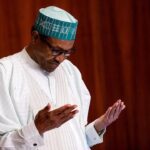The raging debate about Chinese loans which the federal government has been procuring from the Chinese government through its agencies and their implications on our sovereignty reached a climax last week when the Minister of Transportation, leading a number of ministers and top government officials, came up against a Committee of the House of Representatives investigating the matter.
Within the past decade, the federal government has resorted to borrowing from the Chinese government to fund a number of infrastructure projects across the country. These projects range from railway construction, airports upgrade, telecoms, power, roads and bridges which will hopefully improve the poor state of infrastructure in the country and reduce the hardship of Nigerians in those areas.
The issue is not about the necessity of the loans and the use to which they are to be deployed. In our state of development, which is characterised by poor infrastructure, we certainly need to obtain foreign assistance to develop and upgrade them.
Such assistance, as is the reality in the international system, comes for the most part with the benevolence of the country or countries from which it is sought. In effect, it is the price a country has to pay in its bid to develop itself.
In this regard, apart from the Chinese, the federal government has also sought and obtained loans from the International Monetary Fund (IMF) and the World Bank for sundry purposes.
But a discerning country must also consider that in the pursuit of such loans, it should not open itself to the manipulation of foreign powers and interests. Specifically, there must be a well-structured plan for the diligent implementation of the projects and programmes for which the loans are sought, in order not for it to be frittered away on non-productive ventures.
But more significantly, we must be vigilant enough in the negotiations for such loans not to appear desperate as to accept provisions or clauses which will lead us to losing some of our most valued assets and even our sovereignty in order to pay them off.
It is the danger of the possibility of this happening, as it did in some countries, that necessitated among other factors, for the invitation by the House Committee on Treaties, Protocols and Agreements, led by its chairman, Hon. Ossa Nicholas Ossai, to the transportation minister to explain the modalities and conditionalities of the Chinese loans. In the committee’s due diligence on the loan agreements, it had discovered sensitive issues pertaining to the sovereignty of Nigeria, local content component and arbitration.
We think the committee of the House of Representative as representing the people of Nigeria and its sovereignty, has a constitutional duty to look into the issue and subject it to scrutiny.
It also bears reminding that the legislature, of which the committee is an arm, is not just responsible for making laws on governance of the country, it also must subject all laws, treaties and agreements with foreign entities for clearance before they are implemented in the country.
It is therefore gratuitous the statement credited to the Minister of Transportation, Rotimi Amaechi, calling on the committee not to investigate the provisions of the Chinese loans in order not to scare away the Chinese government from approving them.
In addition to trying to prevent the committee from doing its job, the statement is unbecoming of a minister of the Federal Republic of Nigeria. In recognition of his position as the holder of such a very important cabinet portfolio, and as a former governor and head of a state legislature, we expect circumspection from minister Amaechi on such a sensitive issue.
In his rather flippant defence of the provisions of the Chinese loans, he unwittingly sounded as if he was defending the interest of the Chinese government more than that of Nigeria, his country whose interests he must defend more vigorously.
Such a statement coming, as it is, raises questions as to whether the Nigerian negotiating team for the loans actually bargained robustly as expected of them during the engagements with the Chinese.
It is for this and other germane reasons that we support the House Committee in its investigations into the Chinese loans and for which we call on the ministers and the negotiating teams for the loans to fully cooperate with them. We insist that Nigeria cannot afford to mortgage its future on the exigencies of obtaining loans whose very provisions are not diligently negotiated.

 Join Daily Trust WhatsApp Community For Quick Access To News and Happenings Around You.
Join Daily Trust WhatsApp Community For Quick Access To News and Happenings Around You.


